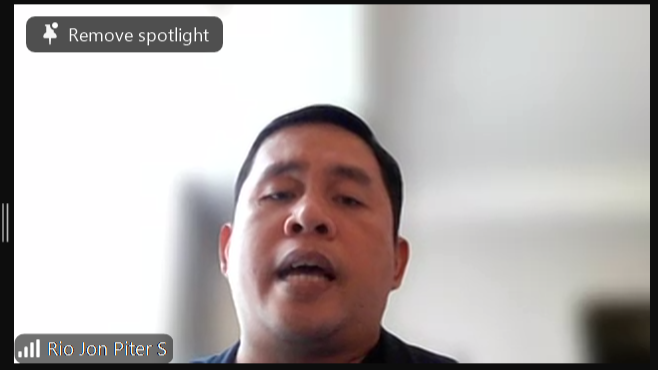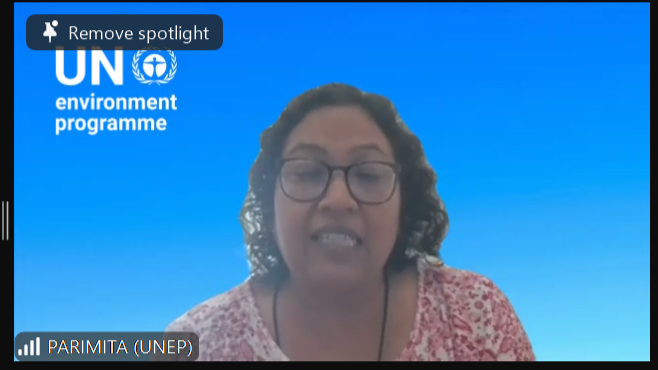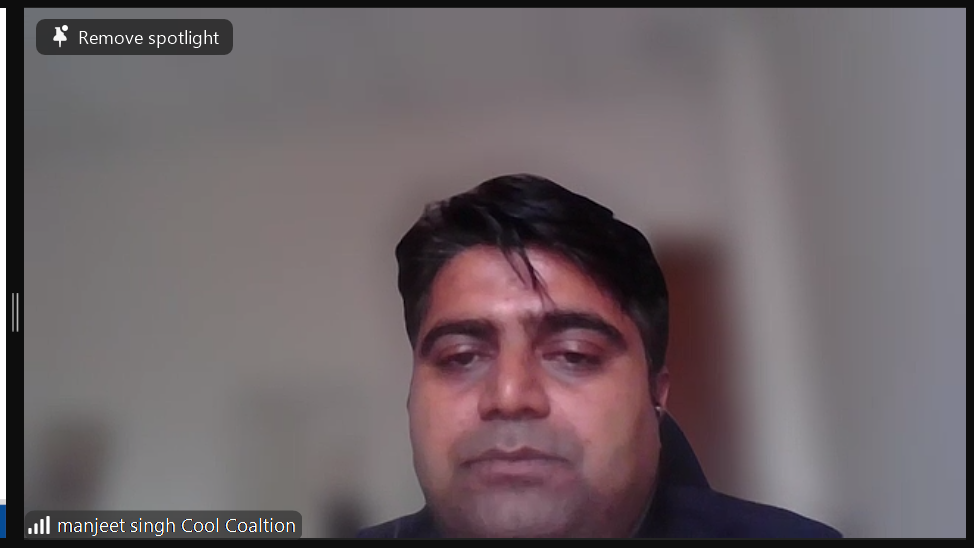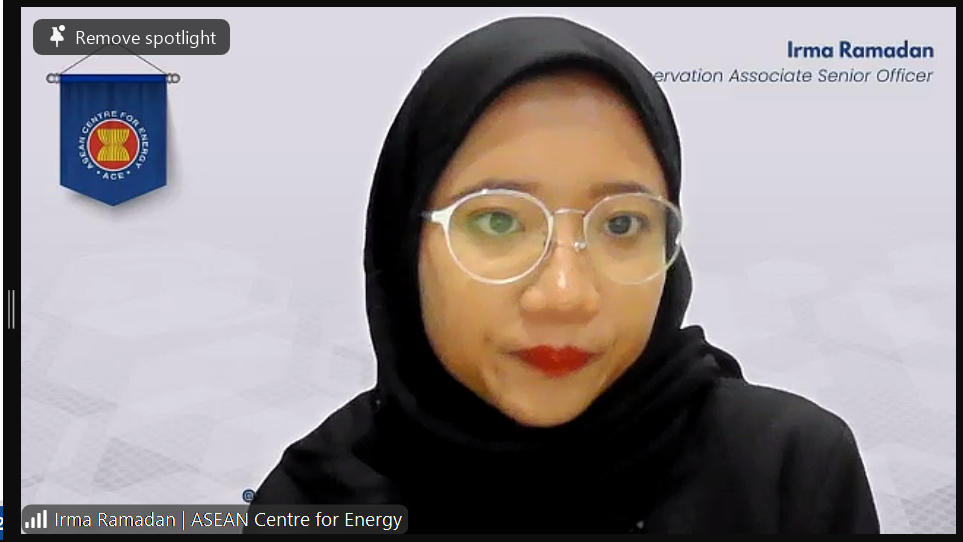Menu
On 30 June 2025, the ASEAN Centre for Energy (ACE), in collaboration with the United Nations Environment Programme (UNEP), GlobalABC, and UN Women, organised the virtual Kick-Off Meeting of the ASEAN Passive Cooling Advisory Group. This session marked the formal establishment of the Advisory Group and the introduction of the forthcoming “Roadmap for Passive Cooling in the ASEAN Region: An Inclusive Heat Resilience Approach.”
The meeting brought together 46 participants—including 19 women and 27 men—from the ASEAN Energy Efficiency & Conservation Sub-Sector Network (EE&C-SSN) Working Group on Building, the Global Passive Cooling Working Group, and non-government stakeholders. With women comprising 41.3% of attendees, the session reflected ASEAN’s growing commitment to inclusive participation in regional climate and energy dialogues, while reinforcing the importance of a multi-stakeholder, cross-sectoral approach to scaling passive cooling solutions across the region.

Photo 1. Kick-off Meeting Participants
The meeting began with opening remarks from the ASEAN Centre for Energy (ACE), delivered by Rio Jon Piter Silitonga, Senior Officer of the EE&C Department. He highlighted the urgency of addressing escalating urban heat across the region and the need to adopt sustainable solutions. Citing projections from the Intergovernmental Panel on Climate Change (IPCC), he noted that extreme heat could affect up to 1.1 billion people in ASEAN by 2080. He stressed the importance of passive cooling strategies, which include architectural design and nature-based solutions, are presented as effective means to reduce energy consumption and maintain indoor comfort. He positioned that through the establishment of the ASEAN Passive Cooling Advisory Group, diverse stakeholders are encouraged to collaborate and create a roadmap for implementing these solutions across ASEAN. The remarks concluded with a call to action for commitment to energy efficiency and climate resilience, emphasising the importance of collective efforts in achieving sustainable cooling solutions.
 |
 |
Photo 2. Opening Remarks by Rio Jon Piter Silitonga from ACE and Dr. Parimita Mohanty from UNEP
Dr. Parimita Mohanty, Regional Lead of the UNEP Cool Coalition and Programme Management Officer at UNEP, followed with remarks highlighting the urgency of addressing extreme heat, particularly in urban and vulnerable communities. She emphasised the gendered dimensions of heat exposure and promoted passive cooling as a climate-resilient and inclusive solution aligned with the UN Secretary-General’s 2024 Call to Action on Extreme Heat. Citing findings from UNEP’s Global Cooling Watch Report, she underscored that passive cooling could reduce cooling demand by 24%, avoid 1.3 billion tons of CO₂ emissions, and yield up to USD 3 trillion in savings.
Session I, focusing on the establishment of the ASEAN Passive Cooling Advisory Group, was introduced by Manjeet Singh, Technical Advisor at UNEP. This session aims to introduce the roles of the Advisory Group and its members. He explained that the Advisory Group is established within a collaborative framework of ASEAN EE&C-SSN Working Group on Buildings and Global Passive Cooling Working Group. The Advisory Group unites stakeholders from AMS, international organisations, academia, and research institutions to fill a gap in regional coordination on passive cooling. Manjeet emphasised cross-country learning, strategic alignment, and harmonised action to scale passive solutions. The Advisory Group will support joint activities including webinars, workshops, and the development of the regional roadmap, as well as policy synergies and investment mobilisation.
 |
 |
Photo 3. Introduction to the ASEAN Passive Cooling Advisory Group by Manjeet Singh from UNEP (left) and Irma Ramadan from ACE (right).
Irma Ramadan, Senior Officer of the EE&C Department at ACE, then presented the Terms of Reference (TOR) for the Advisory Group. She outlined the roles of the Advisory Group as a strategic and technical body guiding the regional roadmap on passive cooling, ensuring alignment with national and regional priorities. ACE will coordinate communications and documentation, while UNEP will provide technical resources and stakeholder engagement. The Advisory Group will function as a community of practices supporting knowledge exchange and co-development of best practices. The planned activities for this Advisory Group include online consultations, regional webinars, workshops, and roadmap monitoring.
The session continued with the introduction of Chairs of Advisory Groups. The Chair is responsible for leading discussions and ensuring adherence to the TOR. The meeting confirmed that Dr. Daniel Collin Jornales from the Department of Energy, Philippines, will serve as the Chair and Professor Tetsu Kubota from Hiroshima University, as the Co-Chair. The chairmanship of this Advisory Group will be rotated annually, ensuring continuity and inclusivity.
Session II introduced the ASEAN Roadmap for Passive Cooling, presented by Manjeet Singh and Rio Jon Piter Silitonga. Manjeet highlighted that future meetings will be more interactive, while Rio outlined the roadmap’s evidence-based, inclusive development process. He also introduced a stakeholder survey targeting vulnerable groups and encouraged participants to share it widely to ensure broad, representative input.

Photo 4. Roadmap for Passive Cooling in the ASEAN Region Project by Manjeet Singh (top-right) and Rio Jon Piter Silitonga (bottom right)
C&G Analytica Consulting, as the expert consultant for the regional roadmap, then presented the draft roadmap outline. The key features of the roadmap include alignment with regional and global frameworks, methodology, existing technologies, regulatory landscape, stakeholder analysis, public awareness, policy recommendations, along with monitoring and evaluation frameworks. Members were asked to contribute relevant data, national policies, survey contacts, and best practices using a standard template.

Photo 7. Outline of the Roadmap for Extreme Heat Protection through Passive Cooling in the ASEAN Region presented by C&G Analytica Consulting
Discussion sessions held throughout the meeting highlighted the importance of member contributions, including case studies and expert nominations. Irma confirmed three consultations are planned for 2025, while Manjeet emphasised the group’s evolving role within global frameworks. In the final Q&A, participants praised the roadmap’s structure, and it was confirmed that strategies like OTTV, ETTV, material-level solutions, and nature-based approaches will be key components, with further analysis to follow.
 |
 |
Photo 7. Closing Remarks by Dr. Daniel Collin G. Jornales (left) as the Chair of the Advisory Group and Prof. Tetsu Kubota (right), as the Co-Chair
Dr. Daniel Collin G. Jornales, Chair of the ASEAN Passive Cooling Advisory Group, delivered heartfelt closing remarks, expressing deep gratitude to all participants and reaffirming that the group’s establishment laid the groundwork for a climate-resilient future in ASEAN. He emphasised the urgent need to address the growing risks of extreme heat through passive cooling, a solution that is both traditional and innovative. Echoing this, Professor Tetsu Kubota, Co-Chair and professor at Hiroshima University, underscored the importance and timeliness of the initiative amid rapid urbanisation and climate change. Drawing from over three decades of experience in passive cooling research, including work in Malaysia and Indonesia, he stressed the need for strategies tailored to ASEAN’s diverse climatic and cultural contexts.
As the Advisory Group moves forward, the continued collaboration and engagement of all members will be essential in shaping a robust, inclusive, and actionable roadmap. With the foundation laid during the kick-off meeting, ASEAN is well-positioned to lead the development and implementation of passive cooling solutions that address the region’s unique climate challenges and support a sustainable, heat-resilient future for all.
